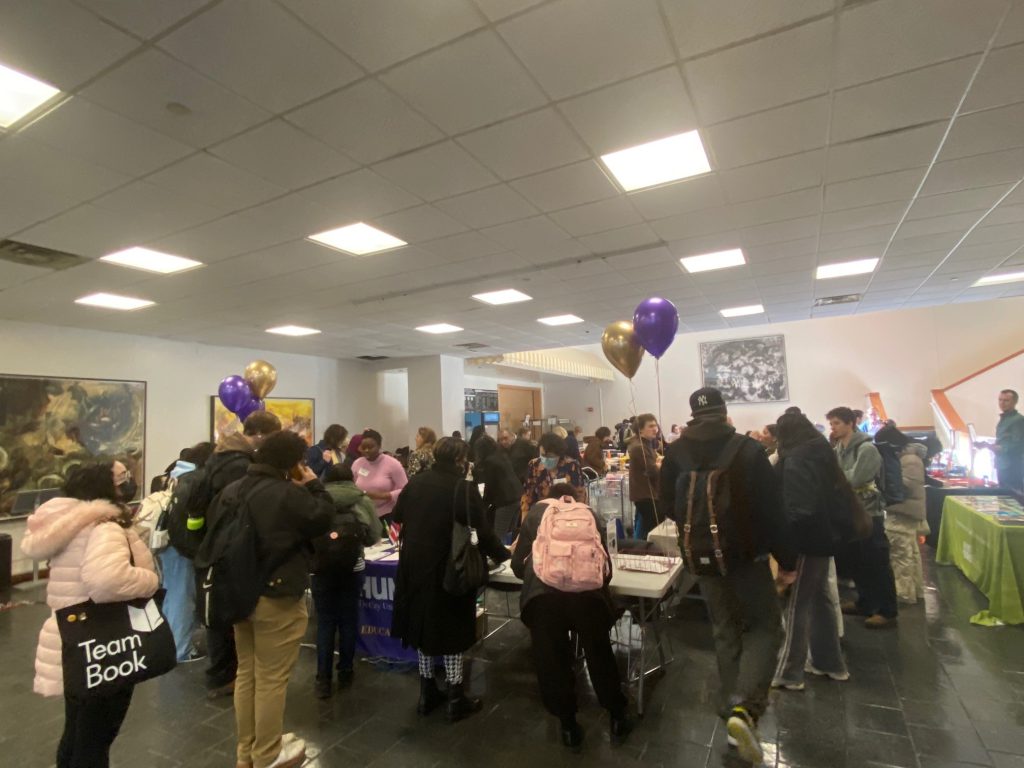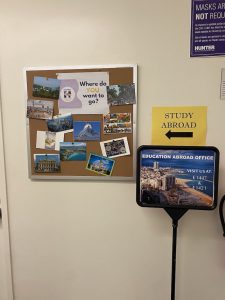
At a public academic institution like Hunter College, experiencing a foreign exchange program isn’t as much of a given as it might be in less economically diverse, private liberal arts schools.
In the 2022-20223 academic year, 250 Hunter students studied abroad. That’s roughly 2% of the undergraduate population, at the low end of the national average, which ranges from 1% – 7%.
Nonetheless, Sarah Craver, director of the Office of Education Abroad at Hunter, said she expects these numbers to grow as interest steadily increases and programs continue to expand. She credits Hunter students with intentional decisions to go abroad, a major difference from what she’s experienced at other colleges.
“Students approach study abroad here with a lot of enthusiasm and excitement,” Craver said. “That’s different from other institutions I’ve been at where sometimes studying abroad was taken for granted – like, ‘oh, it’s something that is definitely going to be part of my college experience because I go to an institution that has a lot of study abroad, or maybe because I have the financial means and that’s just a given.’”
Ryve Obien, a senior at Hunter who just returned from a year abroad through an exchange program with Queen Mary University of London, said it was “the best decision I ever made.”
“The process was so straightforward with the help of Sarah and Emma [Heineman],” he said about the only two members of Hunter’s Office of Education Abroad. “They responded to me immediately, helped me to figure out exactly what kind of program I wanted to do, and even managed to get course equivalencies approved when professors wouldn’t respond to my emails.”
Obien went on to say that he “found himself abroad – I fell in love with London, I met people who changed my life, and I grew in ways I never would have if I’d stayed here.”
Hunter’s Office of Education Abroad aims to make the process as accessible as possible by employing information sessions, classroom visits, and an annual fair to spark interest. What’s most important to them, though, is the individual advising they offer to any student who’d like it.
“We do a lot of listening,” Craver said. “We ask a lot of specific questions to really get to the heart of where people are coming from, and once we have that information, we can interface with all the programs we know are available – and there are so so many.”

Hunter students often subsidize their courses with jobs or internships in New York City, and can thus be led to believe their ability to study abroad will be impaired. The Office of Education Abroad wants them to know that there are a plethora of opportunities diverse in length of time, breadth of subject, and financial commitment.
“Sometimes students write it off because it’s seen as too expensive or outside of their academic trajectory,” said Craver. “But my goal is for people to understand that, while there are costs associated with it, we will try to help you bridge the gap as much as we possibly can.”
In 2022-2023, 50% of study abroad applicants received Pell grants, and 50% received aid through the New York State Tuition Assistance Program (TAP). Another 50%, received support through various study abroad or Hunter scholarships, including 17 Gilman Scholarship awardees last year, and 22 in the October cycle of this year.
To learn more about opportunities to study abroad through Hunter, visit the Office of Education Abroad’s website at https://hunter.cuny.edu/students/opportunities/study-abroad/
“Please don’t hesitate to look into this as an option,” Craver said, when asked what message she’d most like to give to students. “We’re here to do our best to help you, to break down any barriers that we can and provide as much information as possible so students can make informed decisions.”

